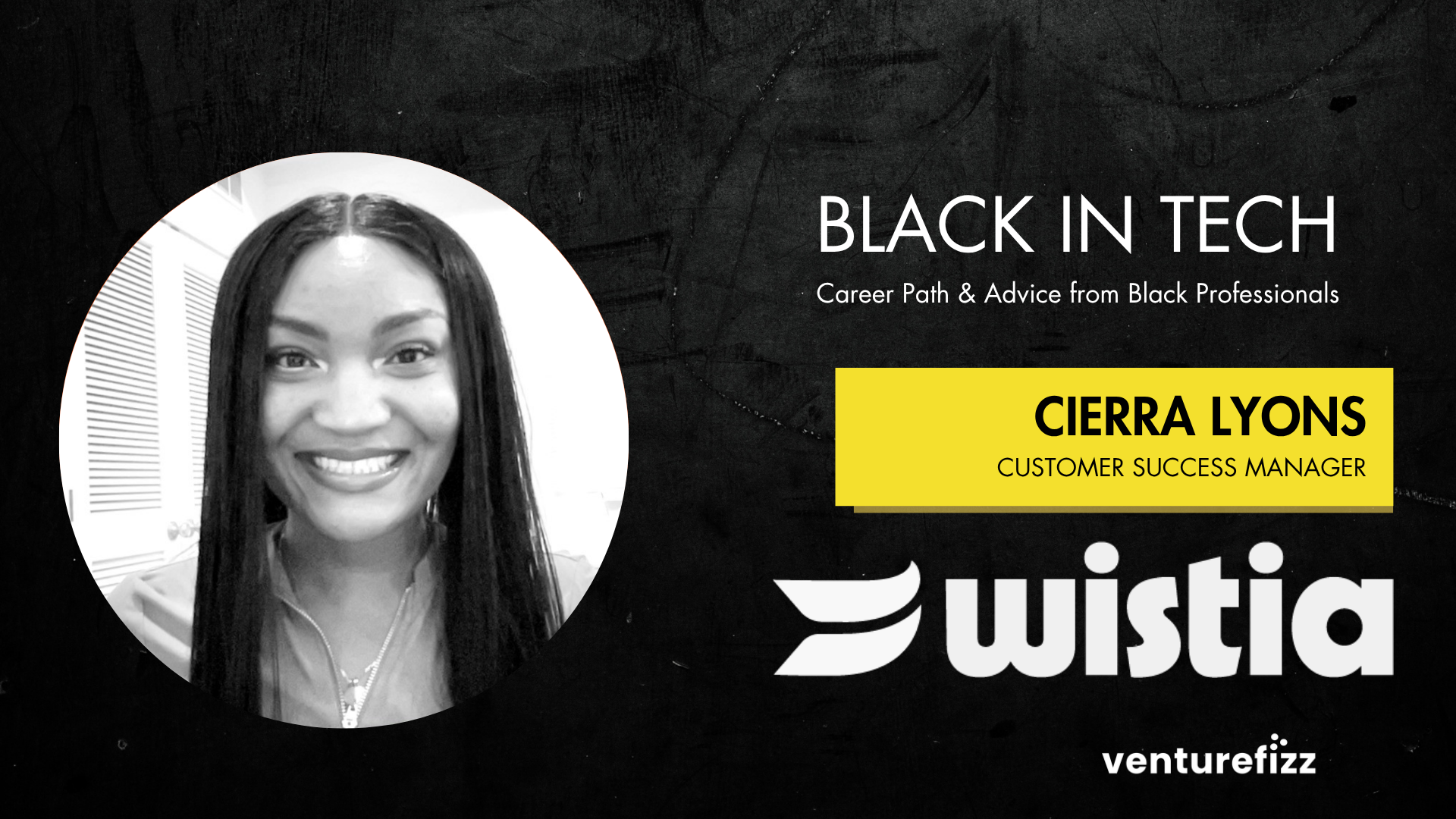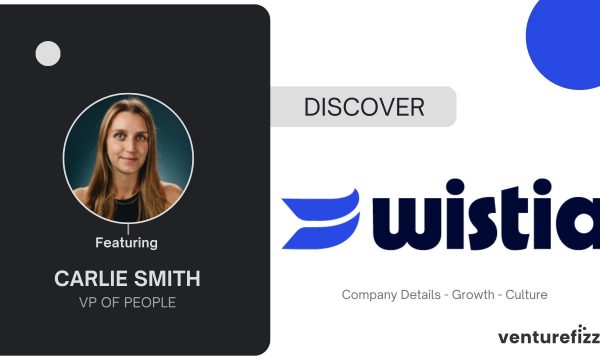Our Black in Tech series features the career path & advice from Black professionals in the tech industry. In this Q&A, Cierra Lyons, Customer Success Manager at Wistia shares her story.
Where did you grow up and what were you like as a child? What did your parents do for work?
I grew up in upstate New York in a suburban area called Gates, located near Lake Ontario and nestled between Buffalo and Syracuse. I later spent about five years living in Buffalo during my mid to late twenties, and I now reside in Philadelphia.
My parents both worked blue‑collar jobs — my mom has spent the last 35 years as a secretary at oncology centers, and my dad worked at Kodak for 25 years until the company filed for bankruptcy. He’s always been incredibly handy, often taking on odd jobs and handling maintenance requests for rental properties, and he also worked part‑time at a high‑end golf club.
Where did you go to college? What did you study and what did you do after graduating?
I graduated from Nazareth College of Rochester with a degree in Communications & Rhetoric and a minor in Business Administration. After graduation, I began my career as a Tech Support Agent for a telecommunications company before relocating to Buffalo to work as a Radio Dispatcher for a Gas & Electric company.
Eventually, I found my way into the SaaS world, joining a small company that provided real-time alert solutions for K–12 schools. It was just me and one other CSM managing the entire customer base, and that’s where I discovered my passion for customer success — building relationships, guiding onboarding and training, and diving into new tools and technologies.
What inspired you to get into the tech industry?
The first SaaS company I worked for was Alert Solutions, and that experience truly shaped my career. It taught me how to learn independently, take constructive feedback, grow accounts, and build strong customer relationships. That role not only sparked my passion for customer success but also inspired me to pursue a career in the tech industry — at the time, with a particular focus on K‑12 and higher education. From there, I moved on to a company called Ellucian, which gave me valuable insight into the enterprise level.
What has your career path looked like in tech and the various positions you’ve held before joining Wistia?
My career path has steadily progressed from Tech Support Specialist to Account Manager, then to Priority Customer Success Manager to Sr. Customer Success Manager and now my role at Wistia. Much of my experience has centered around higher education and e‑learning platforms, until transitioning to my current role at Wistia.
Can you share the high-level responsibilities of your current position as a CSM at Wistia?
I like to say CSMs are a jack of all trades!
- Customer Onboarding & Implementation
Guiding new customers through setup and training to ensure a smooth transition onto the platform and alignment with their goals. - Account Management & Relationship Building
Serving as the main point of contact, fostering trust, and maintaining strong relationships with key stakeholders to ensure long-term success. - Product Adoption & Value Realization
Driving usage of the platform’s features so customers achieve measurable results and see the full value of their investment. - Proactive Support & Issue Escalation
Monitoring account health, anticipating potential challenges, and coordinating with internal teams to resolve issues quickly and effectively. - Strategic Account Growth
Identifying opportunities to expand usage, recommend higher tiers or add-ons, and support renewals to reduce churn and increase value for both the customer and company. - Advocacy & Feedback Loop
Collecting customer feedback to influence product improvements and encouraging satisfied customers to become advocates through testimonials, referrals, or case studies.
What has attributed to your success thus far and what types of obstacles have you had to overcome along the way as a Black professional?
Honestly, the connections I’ve built with peers across different companies have been a major factor in my success. It’s true what they say — sometimes it really is about who you know. These relationships have not only motivated me to take risks but have also reminded me of my value and worth.
As a Black woman in technology, it can sometimes feel lonely, depending on the company environment. A common challenge I’ve faced is being the only Black woman — and, at times, the only woman — on a team. I experienced this dynamic in college as well, which in many ways mirrors corporate environments, so I’ve had to learn how to navigate spaces where I am a minority and still find ways to thrive.
What types of programs and initiatives does Wistia have that support diversity, equity, and inclusion?
I have to say, out of all the companies I’ve worked for, Wistia has been the most diverse and inclusive. The company offers dedicated Slack channels where minority groups can connect and support one another, and they actively encourage employees to carve out time to meet during off-sites. Wistia also recognizes and celebrates diverse holidays and hosts company-wide meetings that highlight and foster conversations around diversity. I have never felt more comfortable to be myself than at Wistia.
What advice would you give to other Black professionals who are interested in joining the tech industry?
Seek out a company that truly values diversity, equity, and inclusion. It’s so important to feel a sense of worth in your work and to learn from people with different backgrounds and perspectives. And above all, stay true to yourself. While we all have a professional and casual side, remember that in both spaces, you can — and should — still be authentically you.
While general awareness of the problem of diversity in the tech industry is a step forward, to make a lasting change, real actions need to be taken. Do you have any ideas or suggestions on what companies or employees can do to step up and make a difference?
You’re absolutely right — awareness is only the first step.
For Companies:
-
- Broaden hiring pipelines and use inclusive terms in job descriptions.
-
- Promote diverse voices into leadership and management
-
- Provide DEI training and inclusive benefits and fair pay.
For Employees:
-
- Be in support of underrepresented voices and speak up against bias.
-
- Join culture groups or channels to feel inclusive and heard






